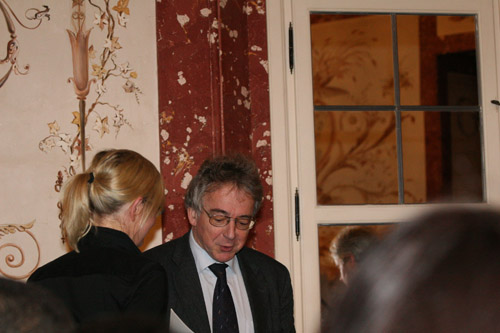
Fighting the war on poverty with high quality early childhood education programs is an issue discussed and supported by numerous contributors to Die globale Suche nach Bildung Serie. Researchers, educators and policy makers have argued that vital learning can and should begin before age 5. When schooling starts for poor children at kindergarten or first grade they have already missed out on vital opportunities to develop skills needed to help them thrive academically, socially, physically and emotionally in their early years of learning.
Heute in Die globale Suche nach Bildung, it is our honor to share the views of Professor Dr. Wolfgang Schneider on pre-school learning and additional matters related to the German and other education systems.
DR. Wolfgang Schneider is currently Professor of Psychology in the Department of Psychology, University of Wurzburg, Deutschland. His research interests include the development of memory and metacognition, giftedness and expertise, the development of reading and spelling, as well as the prevention of reading and math difficulties. He was Vice President and President of the German Psychological Society (2000-2004), and also Vice President of the University of Würzburg (2004-2009). He is author and co-editor of about 40 Bücher, Inklusive Memory Development between Two and Twenty, which he co-authored with Michael Pressley. He is currently President of the International Society for the Study of Behavioral Development (ISSBD).

There are a number of prominent views in the US that pre-school education makes a significant difference in the success of children in primary school. What are the essential elements of this education and what is the impact on child development? Do you believe it can have a significant impact on the achievement gap between affluent and poor children?
Early language skills have to be developed. This is something that the German government is trying to intensify at the moment. We have made some progress regarding the phonological training programs in our country. We also have evidence that training children in phonological awareness helps them to develop the first stages of reading and spelling in school. We have evidence regarding early math training programs too and there are a few rather effective approaches there.
So gab es Hinweise darauf, dass Anfang der Vorschulprogramme machen den Unterschied, particularly for kids at risk. We did a couple of studies with children at risk and compared their improvement with normally developed children. We found that children at risk really can catch up if they have training in the early years. And when they are able to move up to the same level as normal kindergarten kids, Sie scheinen in der Lage, in der Schule und zu entwickeln.
What is the nature of the kindergarten training programs that you designed and what impact has it had on the mental development of children? Are the programs equally as effective with affluent and poor?
We designed a popular training program with two components. One focuses on phonological awareness in both the broad and narrow sense. Phonological awareness in the broad sense would be something like rhyme identification or syllable segmentation. Phonological awareness in the narrow sense means identification of phonemes in syllables. We found it was possible to get German speaking kindergarten children to identify phonemes in syllables and words, and those kids who satisfied that criteria were able to acquire reading and spelling skills earlier than usual. We combined the phonological awareness training with letter-sound coordination training. And so for some frequently used letters, we taught children how they link to phonemes. This helped the children pick up the letter phonemes training in school. We had control groups in our studies that did not receive phonological training but participated in the usual kindergarten program. Thus we were able to compare kids who were trained and kids who did not participate. We discovered that the trained kids had an advantage by the end of kindergarten and kept that advantage during their first years in school. It’s very important that there was a long lasting effect here. Particularly with kids who had poor initial skills.
Right now we are developing an early educational program for kindergarten children for all 16 states in Germany. We will finish our proposal at the end of 2012.
Do you think that the PISA test is an effective measure of the full range of mental aptitudes of students?
I don’t think it’s an effective measure of the full range of mental aptitudes. It does give you a good impression of 15-year-old students’ reading skills, math skills and their ability to cope in the science area, but we don’t get any evidence about their intellectual abilities. In 2000 Wir enthalten ein gewisses Maß an nonverbalen Intelligenz in einem deutschen Erweiterung der PISA-Studie, die die Leistung unter den im Vergleich 16 Deutsch-Staaten und die auf einer großen Stichprobe von etwa beruhte 50,000 Studenten. Wenn wir untersuchten die Auswirkungen der Intelligenz auf die Leistung in Mathematik, Lesen und Wissenschaft, wir herausgefunden, dass nicht-verbale Intelligenz war ein starker Prädiktor in den meisten dieser Tests.
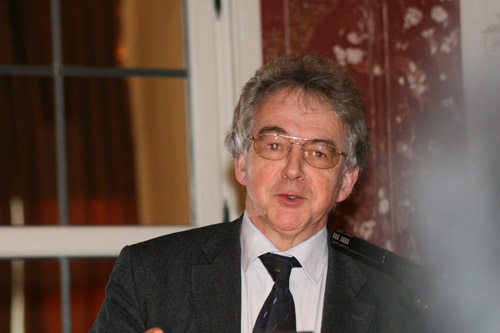
Do you think that in some countries, teaching to the PISA test is now occurring?
I think that this probably does happen and I think that is a problem. Jedoch, I also believe that the way the PISA organization process works makes it difficult. In Germany for example, schools are selected at random. And there is almost no chance for a school to escape once it has been selected. I suppose there could be a couple of schools in the sample that have practiced for the test but we don’t think that would apply to the entire sample.
Do you think that some countries have educational curricula that provide better preparation for the test than others? Does it surprise you that “grinder” countries like South Korea and less structured countries such as Finland both do very well on the test?
As to the impact of different educational systems on the results of the PISA test, it seems very difficult to come up with clear-cut conclusions. You have a diverse group of countries included in the PISA sample with different educational systems, so you have to be very careful when you compare. Jedoch, the achievement patterns observed for the various PISA samples that we’ve seen from 2000 zu 2009 seem to be rather consistent for most of the countries participating. The countries at the top for reading and math, such as Finland and the Asian countries, are famous for their superior curricula in these domains and their competent training programs. So their excellent performance does not seem to be surprising.
The Finnish educational system really focuses on all children, including the weak children, in den Klassenzimmern. Als Konsequenz, das Erreichen Varianz in der finnischen Kinder viel kleiner ist als die Varianz bei Kindern in den meisten anderen Ländern. So Finnland erfolgreich bringen alle ihre Kinder bis zu einem hohen Niveau, die in vielen anderen Ländern nicht zu erreichen.
Wenn Sie in einem Land wie Südkorea Blick auf die Lehr-Verfahren, you see that there is a lot of drilling and practice and very heavy workloads on the students. This is something we do not have in Germany. So I think the quantity of instruction in South Korea makes a big difference here. In former times, Benjamin Bloom in the US already noticed that the quantity of instruction and the time given to reach a criterion is usually a good indicator of student outcomes.
What are the key strengths and weaknesses of the German educational system as you see it?
In Deutschland haben wir verschiedene Lehrpläne 16 different states. A couple of states, einschließlich Bayern und Sachsen, seem to do very well and may even compare with the Finnish achievement scores. The teachers follow the curriculum pretty strictly, which seems to make an impact. We have systematic findings that show while some of our states perform very well others perform poorly. Each state has its own policy. Die Richtlinien sind sehr unterschiedlich, and the states are not able to agree on a common curriculum. Our federal ministry of education has tried to change that but it is difficult as our law states that education must be linked to the state policy.
What is the mix of arts in the usual curriculum in Germany? How do you the see role of the arts in primary and secondary education?
I believe the arts are underestimated in our system. Whenever teachers have to cut hours in a curriculum, the arts get cut first. We have to change that. I believe the arts are important. I think we should start an arts education at the beginning of elementary school, which is not the case now. The major argument against the arts is always that kids shouldn’t do too much in the early years of their education where the emphasis must be on reading, writing and math. Thirty years ago this was not the case as music education started earlier. Now that has changed and it is not a good development.
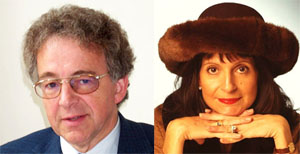
Photos courtesy of Professor Dr. Wolfgang Schneider.
In der globalen Suche nach Bildung, mit mir und weltweit renommierten Vordenkern wie Sir Michael Barber (Vereinigtes Königreich), DR. Michael Block (US), DR. Leon Botstein (US), Professor Ton Christensen (US), DR. Linda Hammond-Liebling (US), DR. Madhav Chavan (Indien), Professor Michael Fullan (Kanada), Professor Howard Gardner (US), Professor Yvonne Hellman (Niederlande), Professor Kristin Helstad (Norwegen), Jean Hendrickson (US), Professor Rose Hipkins (Neuseeland), Professor Cornelia Hoogland (Kanada), Frau. Chantal Kaufmann (Belgien), DR. Eija Kauppinen (Finnland), Staatssekretär Tapio Kosunen (Finnland), Professor Dominique Lafontaine (Belgien), Professor Hugh Lauder (Vereinigtes Königreich), Professor Ben Levin (Kanada), Professor Barry McGaw (Australien), Shiv Nadar (Indien), Professor R. Natarajan (Indien), DR. PAK NG (Singapur), DR. Denise Papst (US), Sridhar Rajagopalan (Indien), DR. Diane Ravitch (US), Sir Ken Robinson (Vereinigtes Königreich), Professor Pasi Sahlberg (Finnland), Andreas Schleicher (PISA, OECD), DR. Anthony Seldon (Vereinigtes Königreich), DR. David Shaffer (US), DR. Kirsten Sivesind (Norwegen), Kanzler Stephen Spahn (US), Yves Theze (Lycee Francais US), Professor Charles Ungerleider (Kanada), Professor Tony Wagner (US), Sir David Watson (Vereinigtes Königreich), Professor Dylan Wiliam (Vereinigtes Königreich), DR. Mark Wormald (Vereinigtes Königreich), Professor Theo Wubbels (Niederlande), Professor Michael Young (Vereinigtes Königreich), und Professor Zhang Minxuan (China) wie sie das große Bild Bildung Fragen, die alle Nationen heute konfrontiert erkunden. Die Global Search for Education Community-Seite
C. M. Rubin ist der Autor von zwei weit Lese Online-Serie für den sie eine 2011 Upton Sinclair Auszeichnung, “Die globale Suche nach Bildung” und “Wie werden wir gelesen?” Sie ist auch der Autor von drei Bestseller-Bücher, Inklusive The Real Alice im Wunderland.


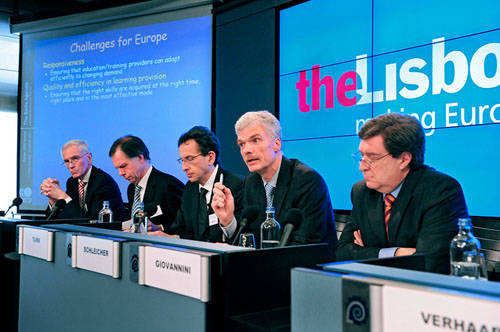
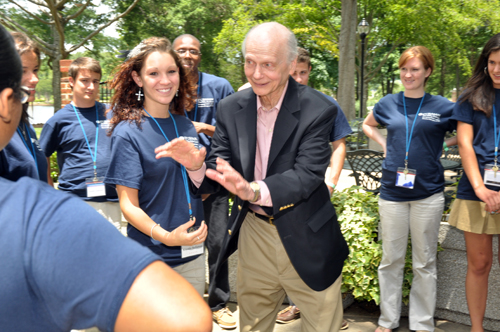


Jüngste Kommentare